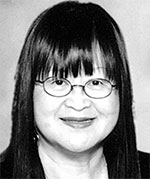
수지 오 교육학박사. 교육컨설턴트
Happy 2014! I hope you enjoyed the winter holidays. The culmination of the old year and the commencement of the new one provide us with the opportunity to reflect upon 2013’s goals and establish new directions for 2014. It’s a time for a new beginning and a time of renewed hope.
On January 20, 2014, we will observe the birthday of an American leader who devoted his individual talents not for profit or social status but for the advancement of society.
Martin Luther King, Jr. is remembered for championing the causes of the disadvantaged. However, I believe Dr. King influenced the more prosperous members of society just as significantly. His crusade was to inform the “strong” links that their individual strength meant little if other links were close to collapsing: “Injustice anywhere is a threat to justice everywhere.” Those words reflect Dr. King’s belief in the “chain” of society. Thus, he believed that because we are all connected, a person’s ultimate achievement was to contribute to one’s community, to needs of others than one’s own.: “An individual has not started living until he can rise above the narrow confines of his individualistic concerns to the broader concerns of all humanity.” This idea has gone in and out of fashion with popular culture, but its truth continues to inspire serious individuals of all ages and settings.
When I immigrated to America more than 40 years ago, this country was embroiled in very serious domestic and international struggles. The very first course I took in college, “The American Government,” discussed the astonishing range of new issues, events, problems which developed in the late 60’s and the early 70’s: the Vietnam War, the Civil Rights Movement, the Great Society, campus protests, the urban riots, the racial polarization, and the assassination of Martin Luther King in April, 1968. Many of the recent popular social-political ideas were just gaining experience, and prophetic men like Dr. Martin Luther King paid this price with their lives
The “Koreatown” in Los Angeles emerged on the Olympic Blvd. in the early 70’s. By the time I became an English teacher at Los Angeles High School and subsequently a teacher at Hobart Blvd. Elementary School right in the heart of Koreatown in the mid 70’s, Koreatown was growing conspicuously along the Olympic Blvd.
Since that time, Koreatown has thrived. However, despite its prosperity, the Korean-American community still has a long way to go to become a more integral part of American society. We have to still work on changing the outdated, old world model of thinking. The Korean-American community is not an island, but an indivisible part of our own members but also its ties with other communities. Let us commit to the betterment of all others in society
Because we Korean-Americans appreciate the international advantages of a diverse city like Los Angeles, we must mirror these new, diverse models of thinking in our actions. That means we must update our insular attitudes of “us” and “them” and work to make our families, schools, and business meccas for all Americans, not just Korean-Americans. The “links” of the Korean-American community are plenty strong; what Dr. Martin Luther King would say is that we must extend and strengthen our “links” to other American communities. Let us commit to the betterment of all others in society
교육상담: drsuzieoh@gmail.com
<
수지 오 교육학박사. 교육컨설턴트>

